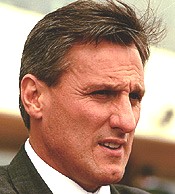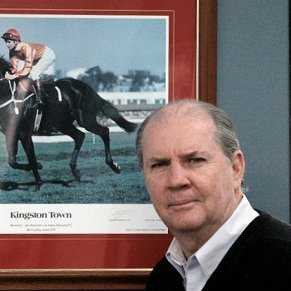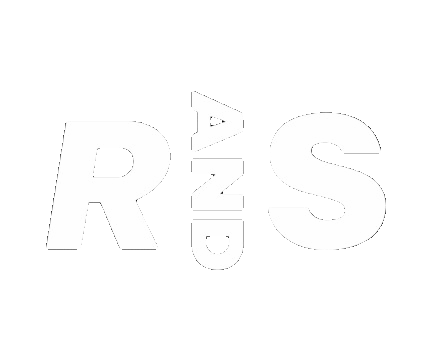3 minute read
International racing bodies have placed horse welfare front and centre during the International Conference of Horseracing Authorities held in Paris.

In the same week that Australian racing again came under public scrutiny due to the on-going police investigations into animal abuse by prominent racing figures, welfare issues were the top priority for ICHA delegates from more than 50 countries including Racing Australia chairman Greg NIchols.
In light of the current adverse publicity racing is receiving in Australia due to the Darren Weir/JarrodMcLean inquiries and subsequent police charges it is hoped Nichols will go on the front foot to reassure the Australian public of how the industry is addressing welfare issues that are becoming a major concern for government authorities worldwide.
The chairman of the International Federation of Horseracing Authorities Louis Romanet provided a lead for Nichols when he addressed the 53rd ICHA in Paris on October 9.
"The difficulties each of us face to properly regulate our sport perhaps have never been greater," Romanet said in his address to delegates.
"Threats to the integrity of competition, rightful concerns on equine welfare and an evolving public perception and social acceptance of horse racing are among the key challenges to operate and grow our global industry."
British politician Tracey Crouch, UK Sports Minister from 2015 to 2018, also made horse welfare the platform for her keynote address with a clear warning to delegates about the changing government attitude towards racing.
"In many countries horseracing has a social licence to operate," she said. "This is commonly understood to mean acceptance of industry practices and procedures by the general public.
"That licence is granted in return for horseracing understanding - and demonstrating - its duty of care for the horses it breeds and races. If horseracing fails in this that licence can easily be revoked.
"You either have informed debate in racing, leading to proactive and reasonable change, or have change forced upon you by policymakers, distant from the intricate detail of the industry but reactionary to public opinion."
Crouch stressed that racing authorities need to better communicate what is being done to ensure high standards of horse welfare that can counter the emotional responses events such as the Darren Weir scandal evoke from the general public and anti-racing opponents.
She said racing leaders need to provide regular evidence of their investment in equine welfare, ensure high profile publicity of successful outcomes and challenge existing attitudes within the sport.
"This is a turning point for the industry," she said. "It is time to embrace the welfare agenda otherwise a generation of racegoers will be lost and an industry susceptible to decline."
Nick Rust, CEO of the British Horseracing Authority, led a session on how equine welfare has changed in the past two decades while other sessions focused on current racing industry perceptions of the consumer and political environment.
Greg Nichols was a member of a panel, including retiring Breeders Cup CEO Craig Fravel and former Australian racing executive Andrew Harding, now an executive director of the IFHA and executive director of racing for the Hong Kong Jockey Club, that discussed how horseracing jurisdictions should meet these challenges and ways the IFHA should be involved.









